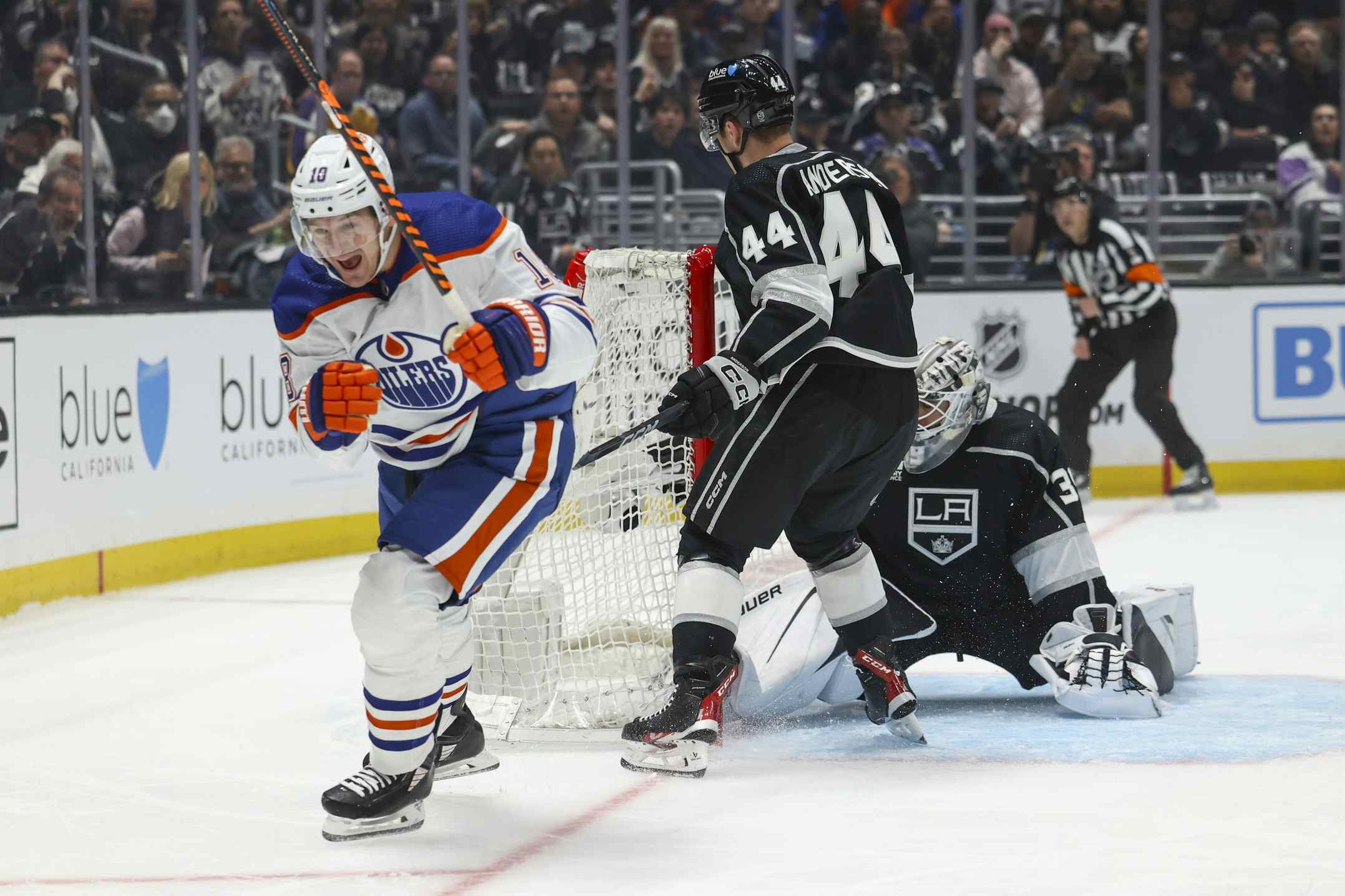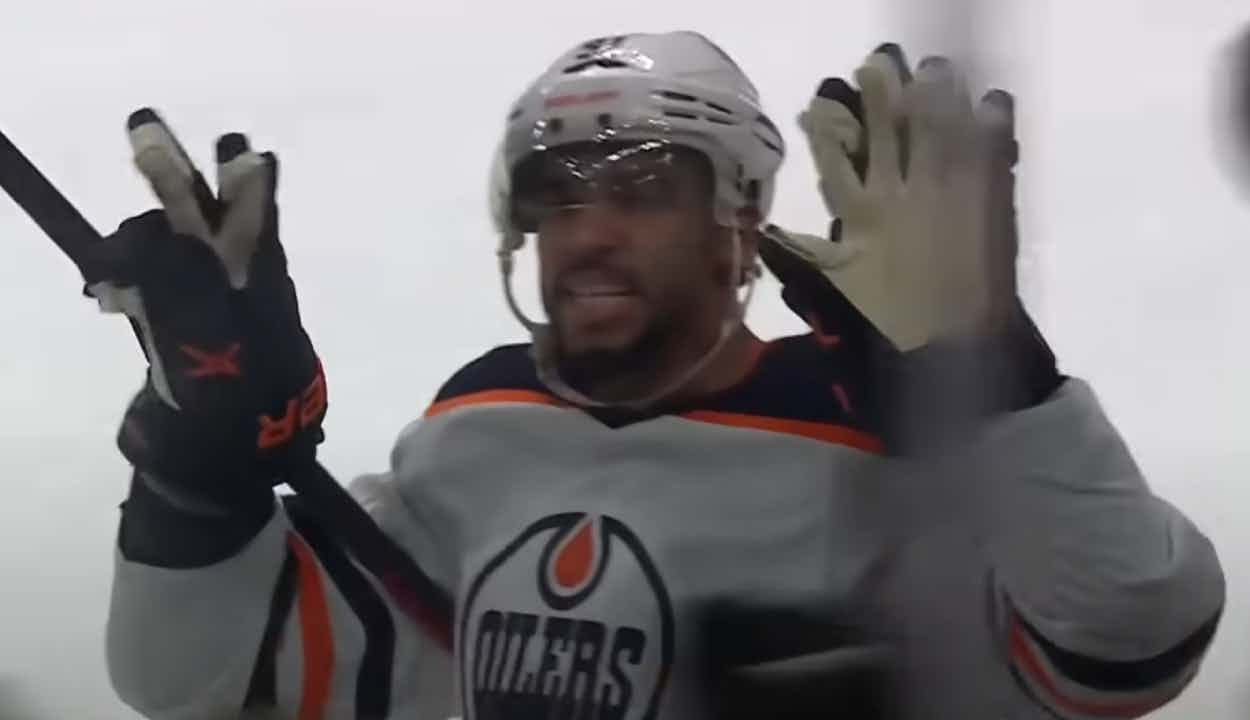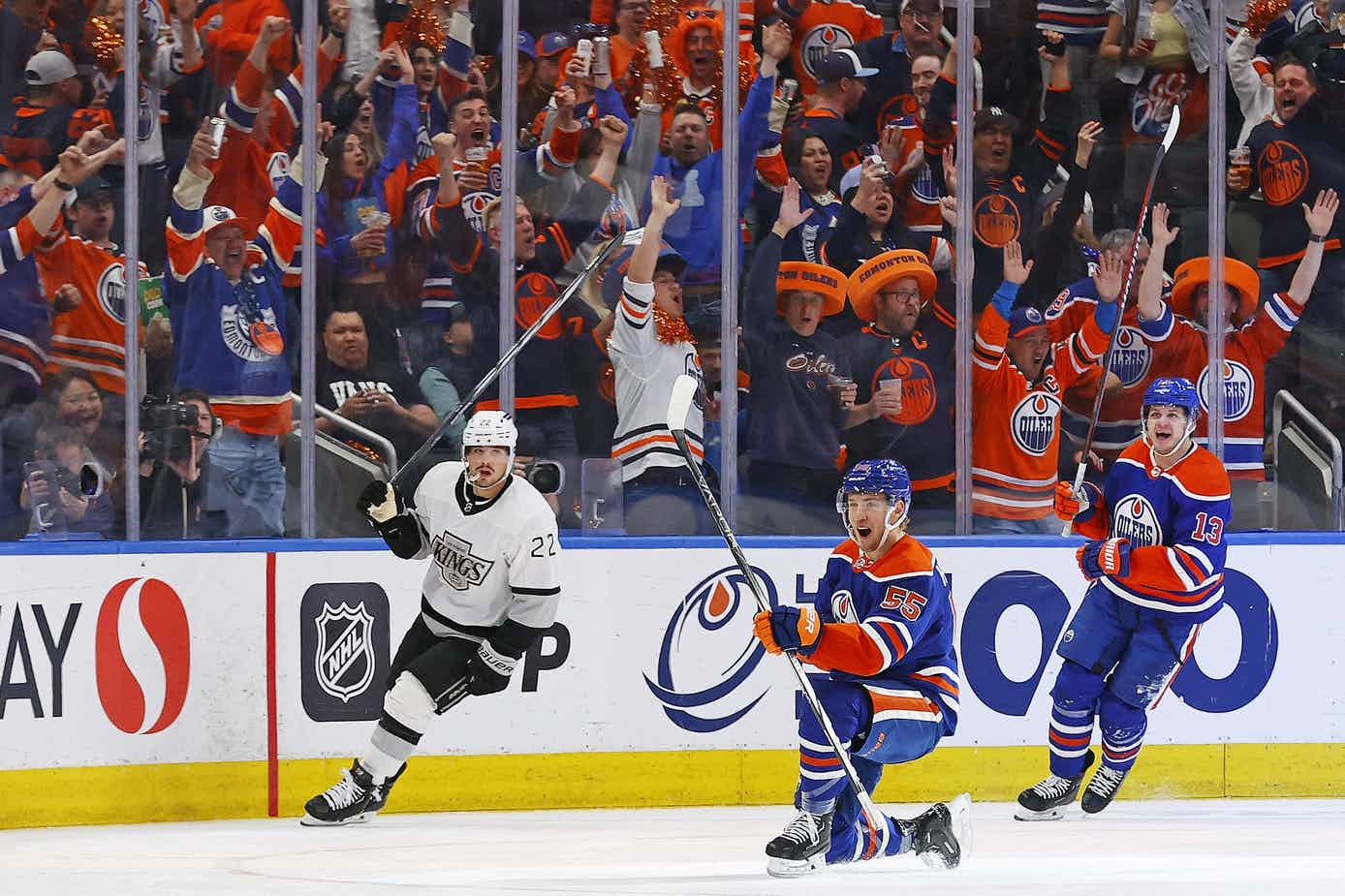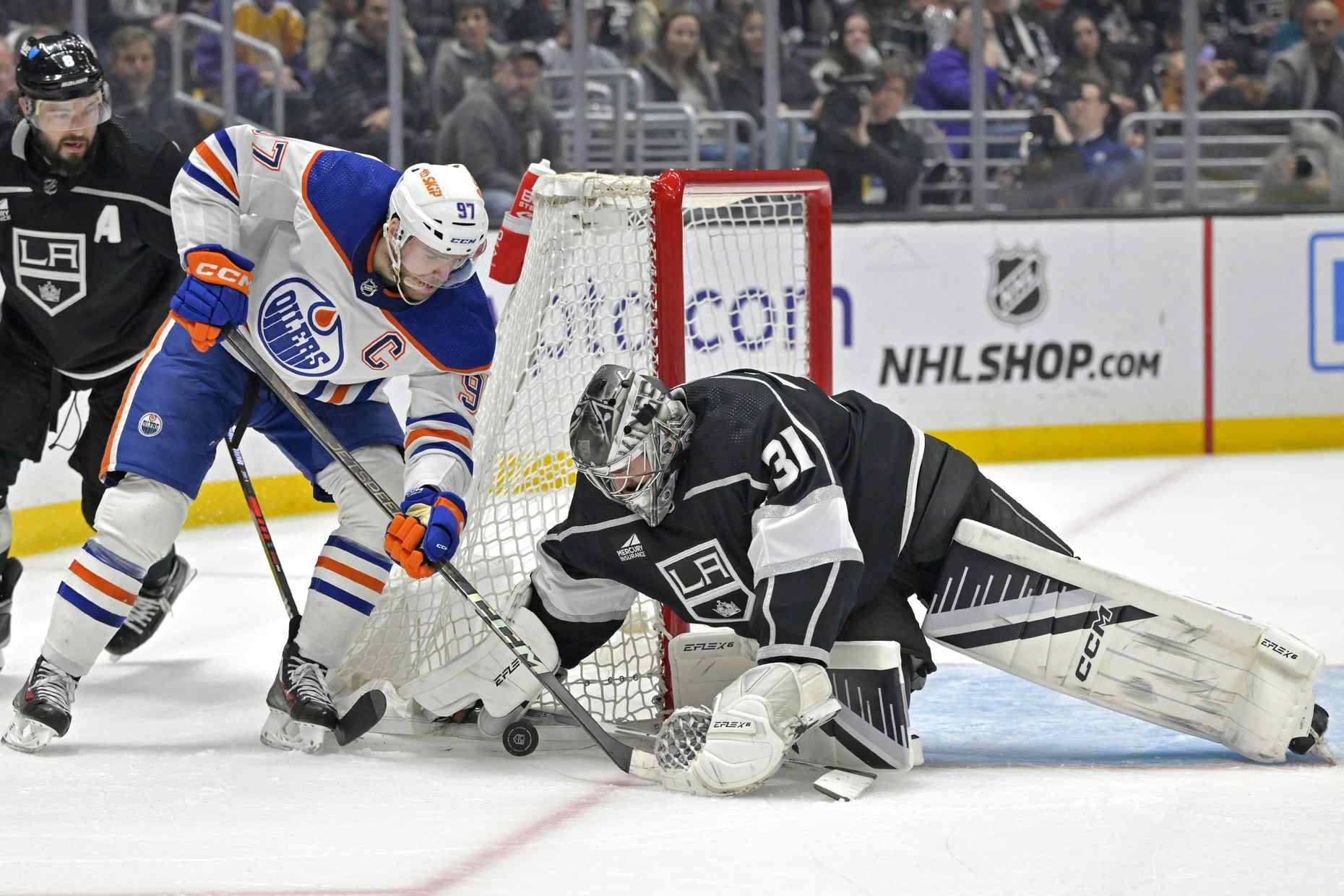A Big Tall Glass of Calmdown Juice

Two games into the 2014-15 NHL season, the Edmonton Oilers are stuck at zero wins. The critical part of that sentence is “two games.” However, “two games” seems to be losing rather badly to “zero wins” in the minds of many of the fans of the team I interact with.
Frustration
I’ve quoted Twitter’s Dennis Arneson and Jake Murphy here, but the thoughts expressed above are by no means unique to them. It’s been a long, ugly road for Edmonton’s NHL team post-2006, and fans are bitter about it. That’s understandable; for that matter, the Oilers are fortunate that they play in Edmonton – in most NHL cities, that many years of incompetence would take a major toll on attendance on consequently team revenue.
Consequently, for most fans the Oilers have a high bar to clear. Any early stumble – and an 0-1-1 run out the gate really puts the “early” in “early stumble” – and instantly the bitterness created by a largely lost decade comes to the fore.
Emotionally, that’s entirely understandable. However, it’s not a good way to get an accurate read on what this team is now.
For example, the 2009-10 club that finished dead last is one that fans still remember watching, one that helps colour their perception of the Oilers today. But every single member of that club has been dealt away, and the coach and G.M. who build it are both long gone, along with a lot of other front office types. Even in just the year and a bit since Craig MacTavish took over as G.M. half the roster has been turned over, along with the entirety of the coaching staff.
So while bitterness and frustration are justified for the fans who’ve blown money and years on a terrible team, the players manning the roster now and the people organizing them have been largely changed in a very short period of time. If we’re going to judge their work accurately, we need to make sure we’re looking at their work and not that of the folks who preceded them.
What I’ve Seen

I don’t think this Edmonton Oilers team is all that good. Looking at the roster, I pegged them to finish 12th in the West (all of our writers made their predictions in this Jason Gregor piece) and I haven’t seen much that changes my mind.
In particular, the defence looks awfully suspect. In theory I like the idea of a Mark Fayne/Nikita Nikitin shutdown pairing, but Nikitin’s history is mixed and the early results are not good; he may not come around in the role. The organization sees Justin Schultz as a much better player than I think he is in reality; if my assessment is accurate their placement of him in the No. 1 slot on the depth chart amounts to a serious self-inflicted wound. Further, in my view the team has damaged its chances out of the gate by demoting Martin Marincin, the best left-side defenceman in the organization.
With that said, there are some positive signs. Nail Yakupov has played well, and the team’s decision to go with four lines that can all play hockey is long overdue and (I think) having immediate benefits. Those benefits haven’t really shown up on the score sheet yet because the Oilers are only scoring on 3.5 percent of their even-strength shots. That will change, and when it does the team will make gains in the standings.
Others may be seeing different things, and that’s fine. But at this stage of the year, it’s a better idea to focus on individual players, roster strengths and weaknesses and underlying numbers than it is to get caught up in wins and losses.
Learning from History

The line “Those who cannot remember the past are condemned to repeat it” gets quoted a lot because it’s true. It also applies in this case. I’ve quoted Martin Male above, and think his comment is both accurate and a pretty good example of fans forgetting about the past.
Let’s go back a few years, to that 2009-10 team we talked about earlier. That team, destined to finish dead-last in the NHL standings, started the year 6-2-1. Tyler Dellow and Allan Mitchell (or, if you’d rather, mc79hockey and Lowetide) each had a post on that team after that start which represented the two sides of a debate; unfortunately the first has been taken down and the second lost its comments section when the website moved. But we can reconstruct the debate.
Here’s what Mitchell wrote at the top of his piece:
The Pat Quinn Oilers are rolling. A shiny new #1 line rolled off the assembly line last night and the club is also enjoying Ladislav Smid’s arrival as a real piece of work on the blue. The Quinn/Renney system features a simple but effective breakout system that relies heavily on forwards and short passes; a wide open offense that allows creativity in one end and asks for button down in the other; a physical style that not all Oilers are well-suited to and most importantly a big fat bag of results so far this fall.
(emphasis added)
Mitchell’s piece was actually focused on Craig MacTavish, and shouldn’t be mistaken for a whole-sale endorsement of Pat Quinn’s new system. The comments section didn’t lack for that, though; there was lots of talk about how the gruff Irishman was a real leader who’d won over the room after MacTavish lost it and that all was going to be sunshine and lollipops the rest of the way.
Dellow’s piece was titled “Irrational Exuberance.” It’s gone now, but Dellow pointed out that the team’s record was wholly unsustainable. Using war-on-ice.com’s date range function, we can go back and look at the team’s numbers at the time; the Oilers were collecting 43 percent of Fenwick (shots and missed shots) events but more than 58 percent of the goals; in other words they were getting destroyed on the shot clock but thanks to a high shooting percentage and a high save percentage (PDO, which combines those two numbers and averages out to about 100 for most teams, had the Oilers at 107.3 at the time) they were winning games.
Dellow, and anyone else who looked at the underlying numbers, knew it couldn’t last and said so. Folks who looked at wins and losses, on the other hand, were blissfully ignorant of what was to come and wrong, wrong, wrong.
I’m bringing this up because through two games we have the opposite situation. Edmonton has a 53.5 percent Fenwick rating at evens (they’re even better by Corsi) and a PDO of 90.7. It’s early enough that we shouldn’t trust those numbers – the Oilers play the Kings and Coyotes on the road before facing Vancouver at home on Friday, and those games could dramatically change the situation – but what they suggest is that so far the Oilers are a better team than that 0-1-1 record indicates.
It’s really easy for all those losses over the last eight years to blur together, and for the only lesson that sinks in to be ‘the Oilers are terrible.’ But it’s worth remembering things like that 6-2-1 mirage because stretches like that illuminate the way the standings can lie, and point out the things worth paying attention to early in the year.
RECENTLY BY JONATHAN WILLIS
Recent articles from Jonathan Willis





